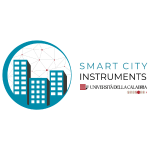At the heart of the REPTES project, a LE...
Continue →Coordinator of the project:
University of Cagliari, Department of Mechanical, Chemical and Material Engineering, Project coordinator: Mario Petrollese
Partners list :
- University of Cagliari (UNICA) – Italy
- Smart city instruments (SCI) – Italy
- University of Liege (ULIEGE) – Belgium
- Green Energy Park (GEP) – Morocco
- Ecole nationale supérieure d’arts et métiers de Rabat (ENSAM) – Morocco
- Ecole nationale supérieure des mines de Rabat (ENSMR) – Morocco
- Federal University of Petroleum Resources Effurun (FUPRE) – Nigeria
- Bucharest University of Economic Studies (ASE) – Romania
Overall Objectives
REPTES aims to develop a proof of concept of innovative RES-based multigeneration/storage systems for covering both heat/cool and electricity demands of isolated and rural communities in Africa and for producing other green commodities for agriculture such as ammonia as fertilizer, desalinated water, and refrigeration energy for food conservation. The core of the system is the coupling between RES-based generators, electrochemical batteries for the short-term storage and a pumped thermal electricity storage (PTES) system.
Context: why is this action necessary?
The proliferation of renewable energy system (RES)-based power plants and the evolution of electrical grids towards distributed generation give a key role to energy storage systems. The need for energy storage becomes even more fundamental in off-grid applications where the reliability and resilience of the energy infrastructures are mainly based on generation system components. Consequently, the design of tailored RES-based grids including effective energy storage systems capable of satisfying all the energy needs (not only electricity) is fundamental for the socio-economic and sustainable development, especially of African isolated and rural communities.
What are the concrete actions that will be implemented?
The potentiality of the integrated system applied to African communities will be evaluated by developing specific mathematical models able to predict the expected performance of such system. The developed models will be validated by experimental activities conducted at lab scale. Simultaneously to the investigation of the technical feasibility of the proposed scheme, the socioeconomic impact of using this scheme in African communities will be analyzed. Specifically, the project will be developed in three phases :
In the first phase, the determination of case studies representative of different potential African applications and the preliminary system design will be carried out to determine the expected features demanded to PTES and to the other utilities.
In the second step, different simulation tools specifically for the PTES, RES generators, batteries and other external thermal sources/use will be developed under Matlab environmental for the component design and for characterizing its performance under off-design conditions. As final step of the second phase, an overall plant model will be developed with the aim of testing and comparing the two PTES configurations under the different case studies analyzed.
In the third phase, the impacts of the use of such integrated system in African communities will be investigated both in terms of economic feasibility, life cycle assessment point of view, and food-water-energy nexus.
What is the expected impact of the project?
Through its innovative solutions, the REPTES system will have a great impact on the quality of life of those who will use it. First, the system will lower the cost of energy supply for communities; second, it will have an impact on sanitary security because it will enable local communities to procure fresh desalinated water. REPTES will also enable improved home comfort by providing fresh and warm air as needed. Green ammonia production will also enable useful fertilizer for agricultural production, 100% renewable and carbon-free.









